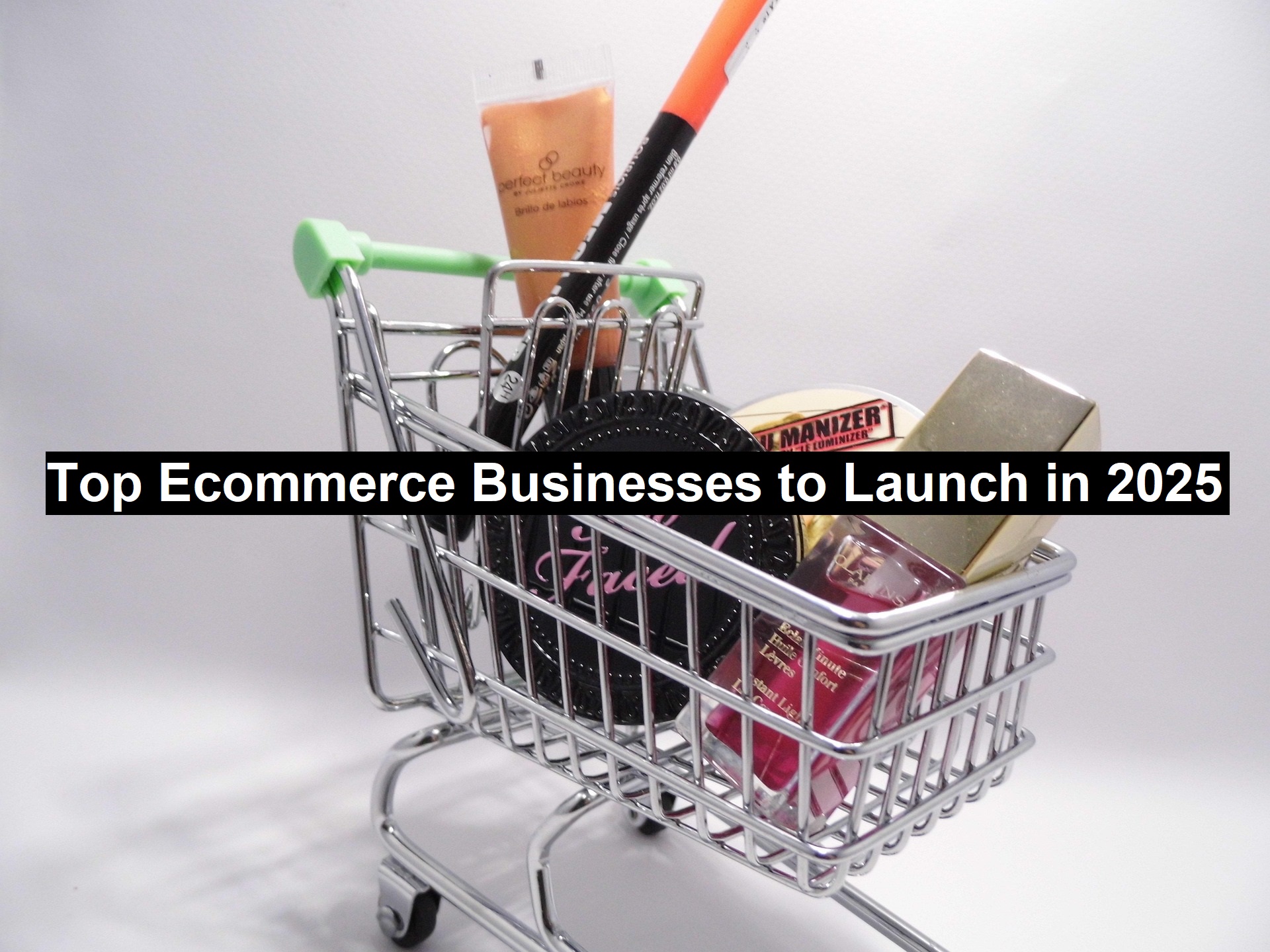As we move toward 2025, the ecommerce landscape is undergoing rapid transformation. Technological advancements, shifting consumer behaviors, and increased global connectivity drive these changes. For aspiring entrepreneurs, staying ahead of these trends is essential.
Here, we will explore some of the most promising ecommerce business opportunities in 2025:
Sustainable products business
Eco-friendly products are quickly becoming incredibly popular as consumers prioritize environmental impact. This trend is expected to continue, offering a substantial market for sustainable goods. Reusable household items, ethically sourced fashion, and biodegradable products are just a few examples of what businesses can offer. Authenticity is crucial in this space; consumers are savvy and can discern genuine efforts from greenwashing. Entrepreneurs who can build trust and deliver quality, sustainable products will likely see significant growth.
Personalized online shopping experiences
Artificial intelligence and machine learning advancements have made highly tailored shopping experiences a reality. Businesses can effectively leverage consumer data to offer personalized
recommendations, exclusive deals, and customized product suggestions. This process enhances the overall shopping experience and increases customer loyalty and retention. In 2025, ecommerce businesses will have more sophisticated tools to understand and predict individual preferences, making it easier to cater to specific needs and tastes. Companies can create a more engaging and satisfying customer shopping journey by focusing on personalization.
Read: Revolutionizing Event Planning Through Digital Solutions
Health and wellness products
The global pandemic has essentially changed how people think about health and wellness. As a result, there is a heightened focus on products that promote well-being. In 2025 the ecommerce market for health and wellness products is expected to grow significantly. The possibilities are extensive, from supplements and fitness equipment to mental health apps and organic skincare. Entrepreneurs should think about tapping into this market by offering products that cater to the ongoing demand for healthier lifestyles.
Home office equipment and supplies
The shift towards remote work continues, creating a growing home office equipment and supplies market. Ecommerce businesses can meet this demand by offering various products, including ergonomic furniture, high-tech gadgets, and stylish office décor. Items that blend functionality with aesthetic appeal will attract a broad customer base. Ergonomic chairs, adjustable desks, and innovative tech tools are among the top sought-after products. Businesses should also consider offering bundles or kits that make it easier for consumers to set up a productive home office. The emphasis on comfort and efficiency will be crucial as more people seek to optimize their work-from-home environments.
Smart home devices
Smart home technology has seen significant growth and shows no signs of slowing down any time soon. With advancements in bright lighting, security systems, and voice-activated assistants, consumers are eager to integrate these innovations into their daily lives. Offering products that enhance convenience, energy efficiency, and security can attract a broad customer base. Businesses can tap into this market by providing user-friendly devices that simplify home management. Items like smart thermostats, automated window shades, and interconnected appliances are particularly appealing. Focusing on seamless integration and ease of use will help capture the interest of tech-savvy shoppers looking to upgrade their living spaces.
Virtual reality experiences and accessories
Virtual reality (VR) technology is rapidly becoming mainstream in entertainment, education, and professional sectors. The expanding market for VR experiences and accessories offers many opportunities for ecommerce businesses. Products such as VR headsets, immersive gaming setups, and virtual travel packages are gaining traction. Additionally, VR is used in training programs, providing realistic simulations for various industries. Entrepreneurs can exploit this trend by offering cutting-edge VR equipment and unique content. Accessories like motion controllers, haptic feedback gloves, and VR-compatible furniture are also in demand, catering to consumers seeking comprehensive VR setups.
Getting your products listed in Google Shopping
To really stick out in a crowded ecommerce market, you need to know how to get your products listed in Google Shopping. This platform allows consumers to compare products, providing a valuable channel for increasing visibility and driving sales. To boost the impact of your listings, make sure that product images are high-quality and accurately represent what you’re selling. Clear, detailed descriptions help potential buyers understand the benefits and features of your products. Competitive pricing is crucial, as it influences consumer decision-making.
Regularly updating your listings to reflect current inventory and any changes in product details ensures accuracy. Proper categorization of products also plays a vital role in improving search results, making it easier for consumers to find exactly what they need. By focusing on these details, you can amplify your presence and reach a broader audience.
The ecommerce landscape in 2025 presents a wealth of opportunities for forward-thinking entrepreneurs. In an age where technology and consumer expectations continually advance, staying adaptable and informed is crucial. You can build a thriving ecommerce business in 2025 and beyond by capitalizing on these emerging trends and leveraging practical tools.

